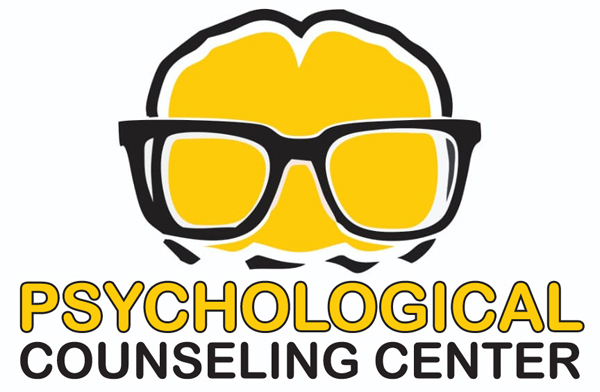Introduction:
Counseling is a type of therapy that helps people manage emotional and psychological issues that can affect their quality of life.
It is an effective way to address a variety of concerns, such as stress, anxiety, depression, trauma, and relationship problems.
Counseling is a confidential process that involves talking to a trained professional who can provide guidance and support to individuals in need.
The importance of counseling cannot be overstated, as it plays a vital role in promoting mental health and emotional well-being.
It provides a safe and non-judgmental space for people to express their feelings, thoughts, and concerns.
This can help individuals gain insight into their problems and develop coping skills to manage them effectively.
Here are some of the benefits of counseling:
1. Improved Self-care:
Improved self-care is one of the primary benefits of counseling.
When individuals prioritize their emotional and psychological needs, they are better equipped to manage stress, reduce symptoms of anxiety and depression, and improve their overall well-being.
Counseling helps individuals develop self-care habits such as exercise, healthy eating, and sleep hygiene, which can have a significant impact on their physical and mental health.
Exercise is one of the most effective ways to improve mental and emotional well-being.
Regular physical activity can reduce symptoms of anxiety and depression, improve mood, and promote better sleep.
Healthy eating is another essential component of self-care.
A well-balanced diet can improve physical and mental health, increase energy levels, and reduce the risk of chronic diseases.
Counseling can help individuals develop healthy eating habits and address any issues related to food, such as emotional eating or disordered eating.
Sleep hygiene is also a critical aspect of self-care.
Getting enough quality sleep is essential for physical and mental health.
Sleep deprivation can lead to fatigue, irritability, poor concentration, and increased stress levels.
Counseling can help individuals develop healthy sleep habits, such as establishing a consistent sleep schedule, creating a relaxing bedtime routine, and avoiding stimulants before bed.
In summary, improved self-care is a crucial benefit of counseling.
By prioritizing their emotional and psychological needs, individuals can develop self-care habits that improve their overall well-being.
Through counseling, individuals can work with their therapist to develop an exercise plan, improve their diet, and establish healthy sleep habits, leading to improved physical and mental health.
2. Stress Management:

Stress is a common experience that can affect people of all ages, genders, and backgrounds.
Stress can come from many sources, including work, school, relationships, financial problems, health issues, and other life events.
While some level of stress is normal and can be motivating, chronic or overwhelming stress can have negative impacts on physical and mental health, such as the increased risk of heart disease, depression, anxiety, and other health problems.
Therefore, effective stress management is crucial for maintaining overall well-being.
Counseling is one-way individuals can learn to manage stress effectively.
A counselor can provide a safe and supportive environment for individuals to explore their thoughts and feelings about stress and develop strategies to cope with it.
Counseling sessions can be one-on-one or in a group setting, depending on the individual’s preference and needs.
One of the first steps in managing stress is identifying the sources of stress.
A counselor can help individuals identify the specific events or situations that trigger their stress response.
Once identified, the counselor can help the individual develop a plan to avoid or cope with those stressors.
For example, if a person is experiencing stress from work, the counselor may suggest strategies like taking regular breaks, delegating tasks, or communicating with the boss or co-workers to reduce stress.
1. Coping skills: are strategies individuals use to deal with stress.
A counselor can teach individuals a variety of coping skills, including relaxation techniques, mindfulness, cognitive restructuring, and problem-solving skills.
2. Relaxation techniques, such as deep breathing, progressive muscle relaxation, and meditation, can help reduce physical tension and promote relaxation.
3. Mindfulness practices, such as paying attention to the present moment without judgment, can help individuals become more aware of their thoughts and emotions and reduce stress.
4. Cognitive restructuring: involves changing negative thought patterns that can contribute to stress.
Problem-solving skills involve breaking down a problem into smaller, manageable steps to reduce stress and increase feelings of control.
4. Resilience is the ability to bounce back from adversity.
A counselor can help individuals build resilience by teaching them skills to manage their emotions, develop a positive mindset, and cultivate social support.
Resilience can help individuals better manage stress and maintain their overall well-being.
For example, a counselor may help an individual develop positive self-talk, such as “I can handle this,” or encourage the individual to reach out to friends or family for support.
5. Poor communication: can lead to misunderstandings, conflict, and stress.
A counselor can help individuals improve their communication skills, including active listening, expressing emotions effectively, and resolving conflicts.
These skills can improve relationships and reduce stress.
For example, a counselor may teach an individual how to use “I” statements to express their feelings, such as “I feel frustrated when you interrupt me during conversations.
6. Self-care: refers to activities individuals engage in to promote their physical, emotional, and mental well-being.
A counselor can help individuals develop a self-care plan that includes activities such as exercise, healthy eating, getting enough sleep, and engaging in hobbies or activities that bring joy.
Engaging in self-care activities can help individuals better manage stress and maintain their overall well-being.
For example, a counselor may encourage an individual to schedule regular exercise or plan a fun activity with friends to reduce stress.
3. Coping Skills: And Techniques
Coping skills are essential tools that help individuals manage difficult situations, stress, and emotional distress.
Counseling is a valuable resource that can help individuals develop and enhance their coping skills.
A skilled counselor can provide support, guidance, and practical techniques that can help individuals navigate challenging situations and overcome adversity.
One critical coping skill that individuals can learn through counseling is problem-solving.
Problem-solving skills involve identifying the problem, analyzing potential solutions, and selecting the best course of action.
Effective problem-solving skills can help individuals feel more confident and empowered when faced with difficult situations.
Setting boundaries is another critical coping skill that individuals can learn in counseling.
Boundaries are guidelines that individuals establish for themselves to protect their physical, emotional, and mental well-being.
Counselors can help individuals identify their boundaries and teach them effective communication strategies to express and enforce their boundaries.
Relaxation techniques are also important coping skills that individuals can learn in counseling.
Techniques such as deep breathing, meditation, and progressive muscle relaxation can help individuals reduce stress and anxiety.
A skilled counselor can teach individuals these techniques and help them develop a relaxation routine that works for them.
In conclusion, coping skills are essential for managing life’s challenges.
Counseling is an effective way for individuals to learn and enhance their coping skills.
Through counseling, individuals can develop problem-solving skills, set boundaries, and learn relaxation techniques that can help them manage stress, reduce anxiety, and improve their overall well-being.
4. Communication Skills:

Communication skills are an essential aspect of healthy personal and professional relationships.
Counseling can be a valuable resource for individuals who want to improve their communication skills.
A skilled counselor can help individuals identify areas of communication that may need improvement and provide practical strategies to enhance their communication skills.
One important communication skill that individuals can learn through counseling is how to express themselves clearly.
Many individuals struggle with expressing their thoughts and feelings in a way that is easily understood by others.
A counselor can help individuals learn effective communication techniques, such as using “I” statements, active listening, and asking open-ended questions.
Clear communication can lead to better understanding and more fulfilling relationships.
Another critical communication skill that individuals can learn in counseling is active listening.
Active listening involves fully concentrating on what someone is saying and responding in a way that shows that you have heard and understood them.
A skilled counselor can teach individuals effective listening strategies, such as restating what the speaker has said or asking clarifying questions.
Active listening can help individuals build stronger relationships by fostering mutual understanding and respect.
Resolving conflicts effectively is another valuable communication skill that individuals can learn in counseling.
Conflict is a natural part of any relationship, and learning how to manage conflicts healthily is essential for building strong and lasting relationships.
A counselor can teach individuals effective conflict resolution strategies, such as identifying the source of the conflict, staying calm and focused, and finding a mutually beneficial solution.
Counseling can help individuals improve their communication skills, which can be valuable in personal and professional relationships.
This can include learning to express oneself clearly, actively listening to others, and resolving conflicts effectively.
5. Personal Growth:
Personal growth is a continuous journey that involves exploring one’s strengths and weaknesses, setting goals, and working to improve oneself.
This process can involve learning new skills, challenging one’s beliefs, and stepping outside of one’s comfort zone.
Personal growth can be a challenging and sometimes uncomfortable process, but it is essential for living a fulfilling and meaningful life.
Counseling can be a valuable resource for individuals seeking personal growth.
A skilled counselor can provide a supportive and non-judgmental environment for individuals to explore their thoughts, feelings, and experiences.
Through counseling, individuals can gain insight into themselves and their patterns of behavior, identify areas for improvement, and develop strategies for personal growth.
One important aspect of personal growth is self-awareness. Self-awareness involves having a clear understanding of one’s thoughts, feelings, and behaviors.
By becoming more self-aware, individuals can identify patterns of behavior that may be holding them back and develop new ways of thinking and behaving that better align with their goals and values.
Counseling can help individuals develop greater self-awareness by providing a space for reflection and exploration.
Another important aspect of personal growth is setting and achieving goals.
Setting goals provides individuals with direction and motivation and achieving those goals can lead to a sense of accomplishment and increased self-confidence.
Counseling can help individuals set realistic and meaningful goals, develop strategies for achieving those goals, and overcome obstacles that may be standing in their way.
6. Improved Relationships:





